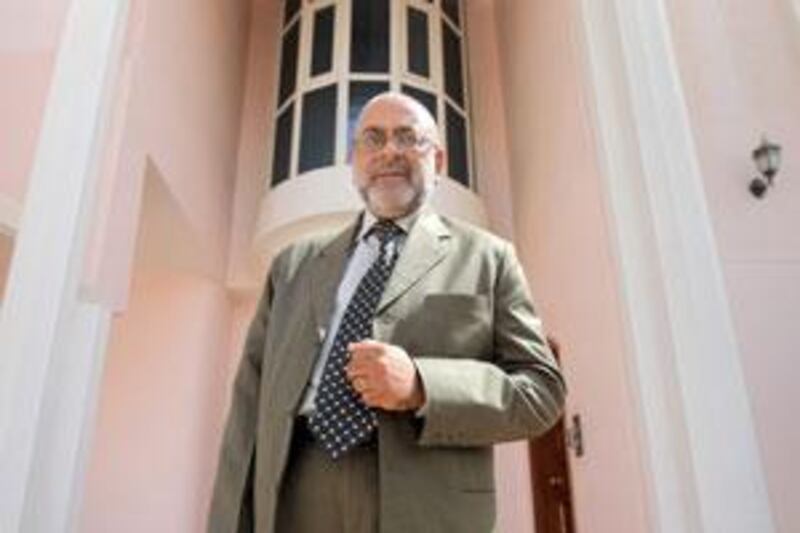DUBAI // With the eyes of the world turning to South Africa for football's World Cup, the pride felt by its citizens is just as strong outside the country as it is at home. An estimated 50,000 South Africans live in the UAE, some of whom have witnessed colossal changes and transformation in their homeland. Lumkile Zitha spent his childhood in New York, the son of South Africans pursuing an education. Lynne Day was raised in South Africa when it was under apartheid rule, and lived abroad for many years.
While Mr Zitha, 26, and Ms Day, 59, are from different generations and races, and have vastly different experiences, both identify themselves proudly as South African. Yacoob Abba Omar, the South African ambassador to the UAE, said the number of South Africans here made up probably the fifth-largest community outside the country. "While there are those who have left, almost all South Africans say they will go back and don't sever their links with the country," he said.
South Africans expatriates can be found working in a cross-section of industries, from the service sector to teaching and medical professions. Ms Day, from Johannesburg, arrived in the UAE in 1996 to take a job in the pharmaceutical industry. She describes herself as one of the "pioneers" within the UAE's South African community, which then amounted to just a few thousand. "It was a very different type of culture to what I was used to," she said. "Like a lot of people, you come for a few years and think you'll move on. I didn't imagine staying." She works in Dubai, for the South African Business Council. There are now three generations of her family living in the emirate after her daughter moved to the UAE, got married and had two daughters of her own.
Ms Day came from what she described as a conservative family. At university, she began to question the system that was governing her country and became active in anti-apartheid efforts. She joined the African National Congress (ANC), a decision that horrified her parents. Ms Day left South Africa to live in Australia, Europe and the United States. She returned in time for the 1994 elections, the first since the end of apartheid rule, which saw Nelson Mandela elected president.
Mr Zitha, a graphic designer, is a more recent addition to the UAE's South African community. He moved from Johannesburg to Dubai in 2008. From a Xhosa background - "Mandela's people", he says - Mr Zitha was 13 when he returned to South Africa from the US in 1996. "My generation, we are in the middle of the transition," he said. "We are not so much affiliated with political parties. We want to see results. It is good to look to the past and take what you can, but also look to the future."
Some expatriates left South Africa because of challenges the country is still facing - high unemployment, crime, HIV infection rates and political corruption. But both Mr Zitha and Ms Day are emphatic about their feelings for their country. "I always consider South Africa home," Mr Zitha said. "It's a beautiful country." Ms Day describes herself as "100 per cent South African". "I definitely see myself going back," she said. "I am very passionate about South Africa."
@Email:zconstantine@thenational.ae






